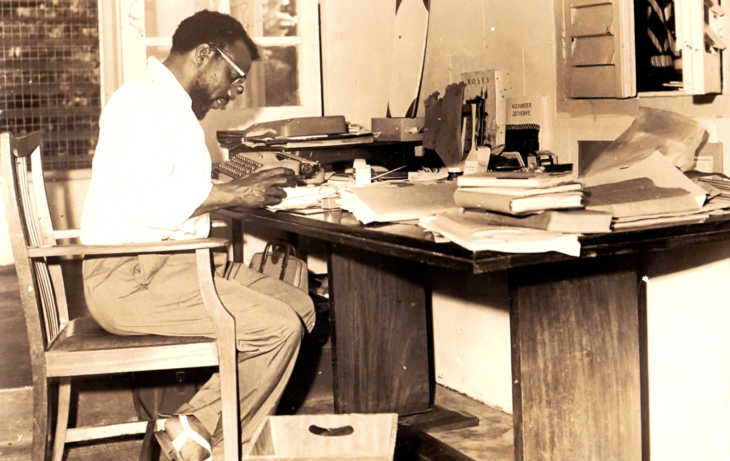Earlier this year, a painting by the late Nigerian master painter and sculptor Ben Enwonwu sold for $1.4 million at an auction in London.
The painting, titled “Christine,” is a portrait of Christine Davis, an American hairstylist who moved to Lagos, Nigeria with her British husband where she met and established a friendship with Enwonwu.
Just before that, another work by Enwonwu of an Ife princess Tutu dubbed “Africa’s Mona Lisa,” sold for $1.2 million in 2018.
It’s considered a national masterpiece.
“This particular painting ‘Tutu,’ the print, hung on every wall, of every middle-class family in eastern Nigeria when I was growing up,” Nigerian author Chimamanda Ngozi Adichie told the BBC in 2013.
So, who is the man behind this work of art?
Born in Onitsha in 1917 to a sculptor father and a successful businessman mother, Enwonwu had a natural gift for art.
At the young age of 17, Enwonwu enrolled in Government College, Ibadan, where he studied fine art under the supervision of art tutor Kenneth C. Murray.
Murray was an English archaeologist and teacher, known to be Nigeria’s first surveyor of antiquities in what is now known as The Nigerian National Commission for Museums and Monuments.
After his time at Government College, Enwonwu studied at Goldsmiths and Oxford before completing postgraduate work in social anthropology at the London School of Economics fueled by his encounters with racism in London, as reported in the BBC.
In 1956, Enonwu became the first African artist to produce an official portrait of the European monarch when he was asked to sculpt an official portrait of Queen Elizabeth II.
And while the Queen publicly endorsed the sculpture, Enwonwu received some backlash in the British art world for “Africanising” the Queen after he took creative liberty with the Queen’s lips to make them fuller.
The Ben Enwonwu Foundation, founded by Enwonwu’s son Oliver, told the BBC that he “is credited with inventing a Nigerian national aesthetic by fusing indigenous traditions with Western techniques and modes of representation.”
Enwonwu died in Lagos at the age of 77 in 1994.
